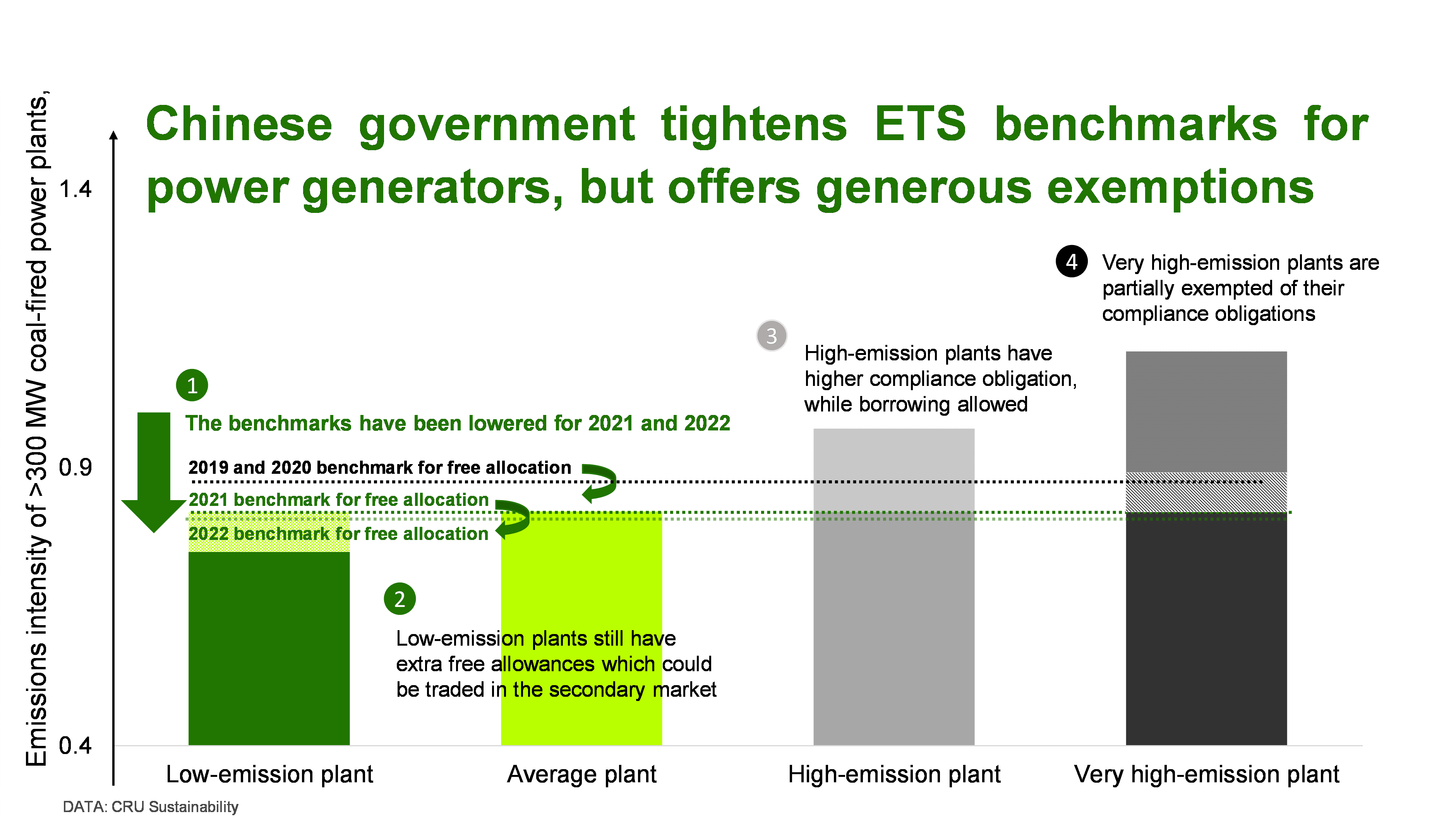The Chinese emissions trading scheme (ETS) uses emissions intensities to determine the compliance obligations of power generators – currently the only sector covered by the ETS. In mid-March, the Ministry of Ecology and Environment retrospectively published the benchmarks for 2021 and 2022 that will be used to determine how many allowances power generators will have to submit. The benchmark is determined by the emissions intensity of an average power plant, with power plants with below average intensities free to sell their unused free allowances while plants with above average intensities will generally have to pay for their emissions not covered by free allowances. This set up should incentivise power generators to become more energy efficient over time.
The 2021 and 2022 benchmarks are based on lower emission intensities than the 2019 and 2020 benchmarks.
In principle this means that power generators should pay more for their emissions. However, in practice, the Chinese government extended numerous previous exemptions and introduced new exemptions to protect power generators from the tighter benchmarks.
The exemption is most generous for gas power generators: as in previous years, they remain exempted from all emission charges for 2021 and 2022. The exemptions offered to coal power generators remain complex. First, their obligations remain capped at 20% of their total verified emissions. In addition, they can use some of their pre-approved 2023 allowance allocation to meet 2021 and 2022 obligations. Finally, special relief packages are now available for emitters that are still not able to afford to surrender – even after the above arrangements – if they are ‘undertaking major tasks of ensuring people’s livelihoods’.
Chinese power generators have been hard hit in the recent past as wholesale energy prices have soared, while retail power prices are tightly regulated. As a result, many generators have recorded losses. With wholesale energy prices falling again, we expect exemptions to be gradually removed from 2023 onwards such that power plants will eventually have to deal with rising emission costs.
If you would like to know more about climate and environmental policy developments in China and the rest of the world, please get in touch.Find out more about our Sustainability Services.
Our reputation as an independent and impartial authority means you can rely on our data and insights to answer your big sustainability questions.
Tell me more


